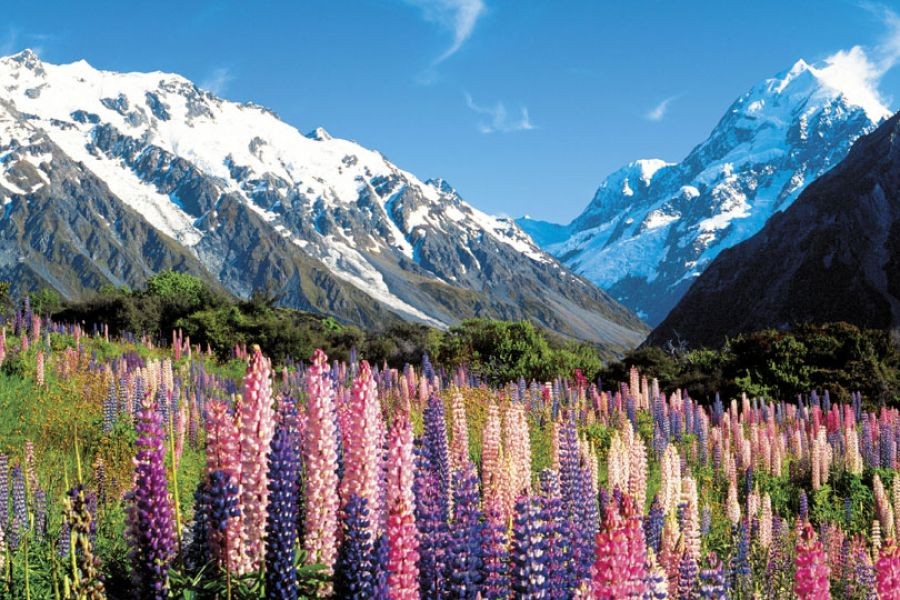Did you know that New Zealand's tourism industry, pivotal for its economy, is also a significant contributor to environmental degradation? It's a complex reality that clashes with New Zealand's pristine image. The tourism sector, a powerhouse generating $41 billion annually, is responsible for over 8% of the nation's GDP. However, this economic boon comes with an ecological cost that needs urgent attention.
Understanding this dilemma requires a nuanced approach, especially for stakeholders like venture capitalists who are considering investments in sustainable tourism initiatives. As New Zealand navigates this dual challenge of economic growth and environmental preservation, the future of tourism in the country stands at a critical juncture.
Future Forecast & Trends
As New Zealand aims to balance tourism growth with environmental sustainability, several trends indicate a shift in the industry. The Ministry of Business, Innovation and Employment (MBIE) projects that by 2025, eco-conscious tourism will grow by 30%, driven by increasing global traveler awareness and environmental policies. This presents an opportunity for investors to capitalize on the growing demand for sustainable tourism solutions.
Emerging Technologies in Sustainable Tourism
Technological innovations are paving the way for more sustainable tourism practices. For instance, the integration of AI and IoT in eco-lodges and smart cities can significantly reduce energy consumption and carbon footprints. A notable example is the smart city project in Wellington, which aims to decrease emissions by 40% by 2030, setting a precedent for other regions.
Government Policies and Economic Impact
The New Zealand government has introduced the Tourism Sustainability Commitment, a policy designed to drive the industry towards sustainability. This includes measures like carbon offsetting and stricter regulation on tourist activities in ecologically sensitive areas. According to Stats NZ, such policies could potentially reduce tourism-related emissions by 20% over the next decade, aligning with the country's zero-carbon goals.
Myth vs. Reality
Myth: Tourism Always Benefits Local Economies
Reality: While tourism injects significant revenue into local economies, it can also lead to resource depletion and increased living costs for residents. Research from the University of Auckland highlights that regions heavily reliant on tourism often face infrastructure strain, leading to higher public expenses.
Myth: Only High-Volume Tourism Causes Environmental Damage
Reality: It's not just the volume of tourists but also the type of activities they engage in. adventure tourism, a popular choice in New Zealand, often involves activities that disrupt wildlife and natural habitats. A study by Massey University found that such activities have caused a 15% decline in native bird populations in certain areas.
Myth: Sustainable Tourism is Not Profitable
Reality: Contrary to this belief, sustainable tourism can be highly profitable. eco-tourism ventures often attract a niche market willing to pay a premium for unique experiences. For instance, the PurePod experience in New Zealand offers eco-friendly glass cabins that blend with nature, achieving a 90% occupancy rate year-round.
Case Study: Real-World Impact
Case Study: Kaikoura – Balancing Tourism and Conservation
Problem: Kaikoura, a coastal town in New Zealand, experienced a surge in tourism, which led to ecological strain on its marine life.
Action: The community, in partnership with local authorities, implemented a marine protection strategy, including strict regulations on whale-watching tours and the establishment of marine reserves.
Result: These efforts led to a 20% increase in marine biodiversity over five years, alongside a 15% rise in eco-tourism revenue, showing that conservation efforts can coexist with economic growth.
Takeaway: Kaikoura's approach serves as a model for other regions, highlighting the potential of strategic conservation initiatives in sustaining both the environment and the economy.
Challenges and Opportunities
The path to sustainable tourism is fraught with challenges, including resistance to change and the initial costs of implementing eco-friendly practices. However, these challenges present opportunities for innovative solutions and investment in green technologies. Venture capitalists have a unique opportunity to support startups focusing on sustainable tourism, benefiting both the environment and their investment portfolios.
Proposed Solutions
- Investment in Green Infrastructure: Funding eco-friendly accommodations and transport systems can reduce the carbon footprint of tourism.
- Encouraging Responsible Tourism: Initiatives that educate tourists on minimizing their impact can lead to more conscious travel behaviors.
- Leveraging Technology: Utilizing data analytics to monitor and manage tourist flow can help in preserving natural resources.
Future Trends and Predictions
Looking ahead, New Zealand's tourism industry is expected to undergo significant transformations. By 2030, the country aims to achieve a 50% reduction in its tourism carbon footprint, driven by advancements in renewable energy and sustainable practices. Additionally, the rise of virtual tourism experiences could offer alternative revenue streams while reducing physical environmental impact.
Conclusion
The environmental impact of New Zealand's tourism industry is a complex issue that requires a multifaceted approach. By investing in sustainable solutions, the country can preserve its natural beauty while continuing to thrive economically. For venture capitalists, the intersection of tourism and sustainability offers a fertile ground for innovation and profit.
What are your thoughts on the future of sustainable tourism in New Zealand? Share your insights below!
People Also Ask
How does sustainable tourism impact New Zealand's economy?
Sustainable tourism contributes to long-term economic stability by attracting eco-conscious travelers willing to invest more in unique experiences, boosting local businesses.
What are the biggest misconceptions about tourism's environmental impact?
One common myth is that only high-volume tourism causes damage. However, research shows that activities like adventure tourism can also significantly disrupt ecosystems.
What are the best strategies for implementing sustainable tourism practices?
Experts recommend investing in green infrastructure, educating tourists on responsible travel, and leveraging technology to monitor and manage tourist flow effectively.
Related Search Queries
- Sustainable tourism initiatives in New Zealand
- Environmental impact of tourism in New Zealand
- Eco-friendly travel destinations in New Zealand
- New Zealand tourism sustainability commitment
- Investing in sustainable tourism







































Krishna Pearls And Jewell
2 months ago